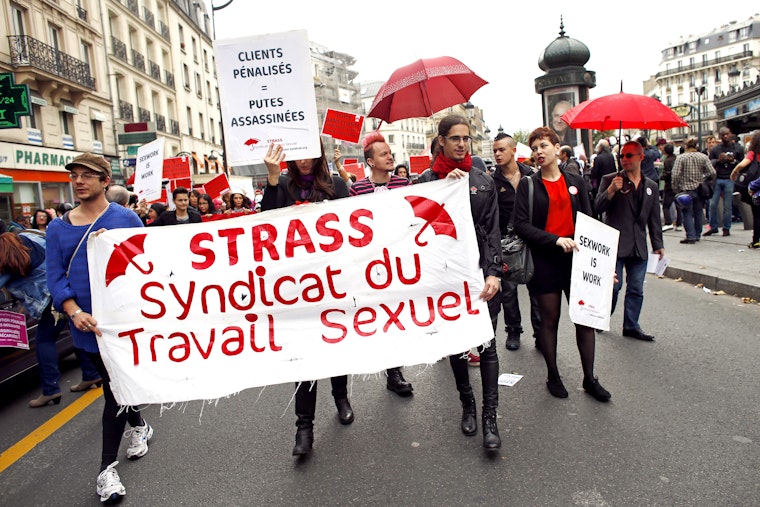Punish the Sex Worker or the Client? You’re Asking the Wrong Question
By Sebastian Kohn

Last month, the French Senate voted down a bill that would have shifted criminal penalties from sex workers to their clients. The country’s health minister was infuriated at the defeat, calling it “regressive,” and warning that it “deprives us of a major tool to reduce demand and therefore prostitution.”
Although France’s health minister may see criminalizing sex workers’ clients—rather than sex workers themselves—as a more progressive approach to the issue, in reality the practical effect is largely the same. Both forms of criminalization perpetuate many of the same harms to the health, safety, and human rights of sex workers.
France is one of many countries in Europe and elsewhere where sex work is high on the legislative agenda. In Canada, England, Germany, Ireland, Lithuania, Northern Ireland, and Scotland, curious alliances between the political left and right have led to a groundswell of populist support to end the demand for sex work, with scant regard for the lives or the voices of sex workers themselves.
As in France, the preferred method for achieving this is known as the Swedish Model, which directs criminal penalties not at sex workers, but at their clients and third parties like brothel owners. Sweden was the first country to adopt this kind of law in 1999, seeking to “abolish prostitution” altogether.
Criminalizing clients, just like most laws that criminalize some aspect of sex work, opens doors to discrimination, police harassment and abuse, and other human rights violations. When sex work is criminalized, the justice system—which should be a source of redress against human rights violations—instead compounds the marginalization and social exclusion of sex workers.
Swedish sex workers report feeling less safe, and experiencing increased stigma and violations of parental, housing, and other rights. Moreover, criminalizing clients has had hardly any impact on the number of people who buy sexual services in Sweden, according to a recent report [PDF] by the County Administrative Board in Stockholm.
Recent research has also confirmed a negative link between criminalization and HIV infection among sex workers. In a special issue of the Lancet published in July 2014, a team of researchers found that full decriminalization—in other words, the removal of all criminal and administrative penalties for workers, clients, and third parties—is the single most effective way of fighting HIV infection among sex workers. According to the researchers, decriminalization could lead to as much as a 46 percent decline in new HIV infections over the next decade.
These facts, and many others, are included in the updated, second edition of our reference brief, 10 Reasons to Decriminalize Sex Work. First published in 2012, we offer readers quick, digestible reasons why full decriminalization is the best policy for promoting the health and human rights of sex workers, their families, and their communities. This update features new research in the field, and draws from recent events.
Of course, the French Parliament and health minister need not take our word for it. All they need to do is listen to the sex workers who have marched outside their doors. As the head of the French sex workers union said, criminalization will only result in sex workers keeping “out of sight and probably working alone in more isolated areas, which is much more dangerous for them. ... If you don’t see the sex workers on the street, it’s not a sign that there are less of them or that their conditions are better.”

Sebastian Kohn is a division director in the Open Society Foundations’ Global Programs.


